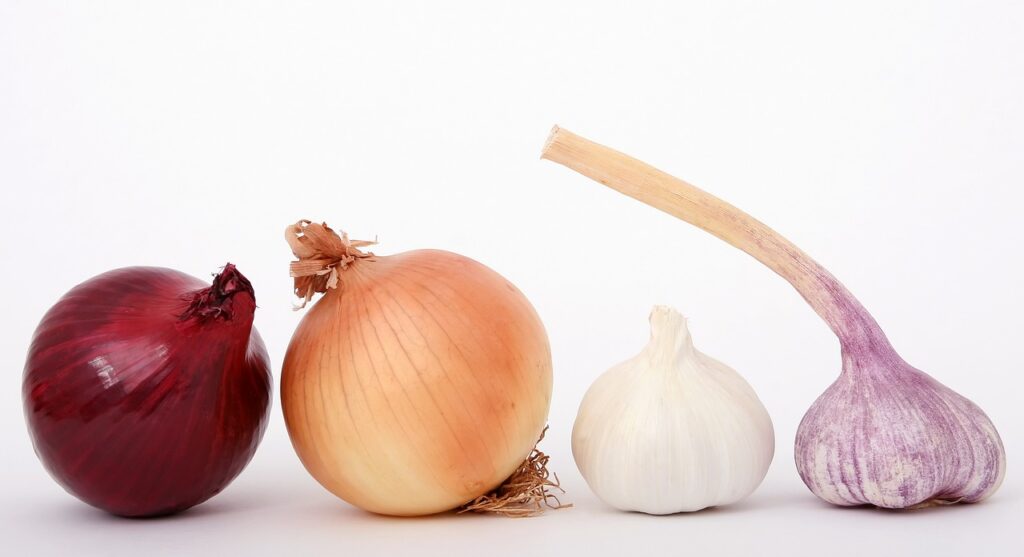Can diet alone improve symptoms of a disease?

Introduction
Adopting a better diet has the potential to significantly improve symptoms associated with various diseases. By incorporating nutrient- rich foods like fruits, vegetables, whole grains, and lean proteins, individuals can support their overall health and alleviate specific health disease concerns. A balanced diet can aid in weight management, reduce inflammation, and reduce blood sugar levels, improve heart health, support digestive function, and boost the immune system. Consulting healthcare professionals for personalized dietary guidance is crucial for optimal results. Remember disease can be tough but a diet can help very much.

Adopting a better diet for disease helps Inflammation?
1. Increase consumption of Omega- 3 fatty acids: found in fatty fish like salmon, walnuts, and flaxseeds to reduce inflammation.
2. Incorporate turmeric into your diet : its active compound, curcumin, has potential anti- inflammatory properties.
3. Consume plenty of greens: such as spinach and kale, which are rich in antioxidants that combat inflammation.
4. Include berries: like blueberries, strawberries, in your diet for their anti- inflammatory effects.
5. Choose whole grains: like oats, brown rice, and quinoa over refined grains to lower inflammation levels.
6. Incorporate ginger: into meals and drinks to benefit from its anti- inflammatory compounds.
7. Add garlic to dishes: it contains sulfur compounds that can reduce inflammation.
8. Enjoy green tea regularly: its polyphenols have anti- inflammatory properties.
9. Increase intake of cruciferous vegetables: like broccoli and brussels sprouts for their anti- inflammatory.
10. Consume extra virgin- olive oil: rich in oleocanthal, which has been shown to reduce inflammation,.
11. Include fatty fish: such as mackerel and sardines in your diet for their anti- inflammatory omega 3 content.
12. Enjoy nuts and seeds: like almonds, chia seeds, which magnesium that helps reduce inflammation.
13. Incorporate tomatoes into meals: they contain lycopene, a powerful anti- inflammatory compound.
14. Choose antioxidant rich- foods: like dark chocolate with high coco content to combat inflammation.
15. Minimize intake of processed food and sugary snacks: as they contribute to inflammation.
16. Limit consumption of red meat: and opt for lean protein sources like poultry and legumes.
17. Drink plenty of water: to stay hydrated and support overall bodily functions, including reducing inflammation.
18 Experiment with herbs: and spices like cinnamon, rosemary, and cayenne pepper, known for their anti- inflammatory properties.
Nutrient rich- foods combat inflammation, support healing, and reduce symptoms, aiding in managing and alleviating the effects of disease.

Helps with Energy?
1. Nutrient- dense foods: provides essential vitamins and minerals necessary for energy production.
2. Balanced Meals: Stabilize blood sugar levels, preventing energy crashes common in certain diseases.
3. Complex carbohydrates: like whole grains release energy gradually, sustaining energy levels.
4. Lean proteins: support muscle repair and energy metabolism.
5. Healthy fats: provide a concentrated source of energy and aid in nutrient absorption.
6. Iron rich- foods: prevents fatigue associated with iron- deficiency anemia.
7. Magnesium rich- foods: supports energy production at the cellular level.
8. Antioxidants: in fruits and vegetables combat oxidative stress, enhancing vitality.
9. Omega 3 fatty- acids: reduce inflammation, promoting energy and vitality.
10. B vitamins: fund in whole grain and leafy greens convert food into energy.
11. Hydration: supports cellular function and prevents fatigue.
12. Avoiding processed foods and sugar: reduces energy- draining spikes and crashes.
13. Fiber rich foods: regulate digestion, preventing energy- sapping digestive issues.
14. Protein- rich snacks: maintain stable blood sugar levels, preventing energy dips.
15. Regular meals and snacks: maintain constant energy levels throughout the day.
16. Caffeine: in moderation can temporarily boost energy and alertness.
17. Including Adaptogenic herbs: like ginseng can enhance energy and resilience.
18. Consulting an healthcare provider: or dietitian for personalized dietary recommendations optimizes energy levels.
Nutrient- rich foods stabilize blood sugar, provides essential vitamins and minerals, and combat inflammation, promoting sustained energy levels for your health.

Longevity as a Human?
1. Nutrient- rich foods: support overall health, reducing the risk of complications, and improving longevity.
2.Antioxidants in fruits and vegetables: helps combat cellular damage, promoting longevity.
3. Healthy fats: protects heart health and reduce the risk of cardiovascular diseases.
4. Lean Proteins: supports muscle health and aid tissue repair, enhancing longevity.
5. Fiber-rich foods: promote digestive health and lower the risks of chronic diseases.
6. Omega- 3 fatty acids: reduce inflammation, lowering the risk of age related conditions.
7. Balanced Meals: stabilize blood sugar levels, reducing the risk for diabetes- related complications.
8. Low sodium diets: support health and reduce the risk of hypertension.
9. Plant- based diets: lowers the risk of certain cancers and chronic diseases.
10. Hydration: supports bodily functions and promotes overall health and longevity.
11. Whole grains: provides essential nutrients and fiber, supporting heart health and longevity.
12. Limiting processed foods and added sugars: reduces the risk of obesity and chronic diseases.
13. Added calcium and vitamin d intake: support bone health, reducing the risk of osteoporosis.
14. Adequate calcium and Vitamin d intake: support bone health, reducing the risk of osteoporosis.
15. Magnesium rich- foods: support muscle and nerve function, contributing to longevity.
16. Vitamin rich- foods: support immune function, reducing the risk of infections and illness.
17. Herbs and spices: like turmeric and ginger have anti- inflammatory properties, promoting longevity.
18. Consulting Healthcare Professionals: for personalized dietary advice optimizes health outcomes and longevity.
A diet reduces disease risk, supports bodily functions, and promotes overall health, contributing to a longer lifespan.
Conclusion
In conclusion, adopting a better diet can significantly impact the management and alleviation of disease symptoms. Nutrient rich- foods, antioxidants, and healthy fat promote healing and reduced inflammation, with balanced meals stabilize blood sugar levels and support vital bodily functions. Consulting healthcare professionals for personalized dietary guidance is essential, empowering individuals to make informed choices that can positively influence their health outcomes and overall well-being.
